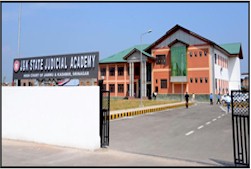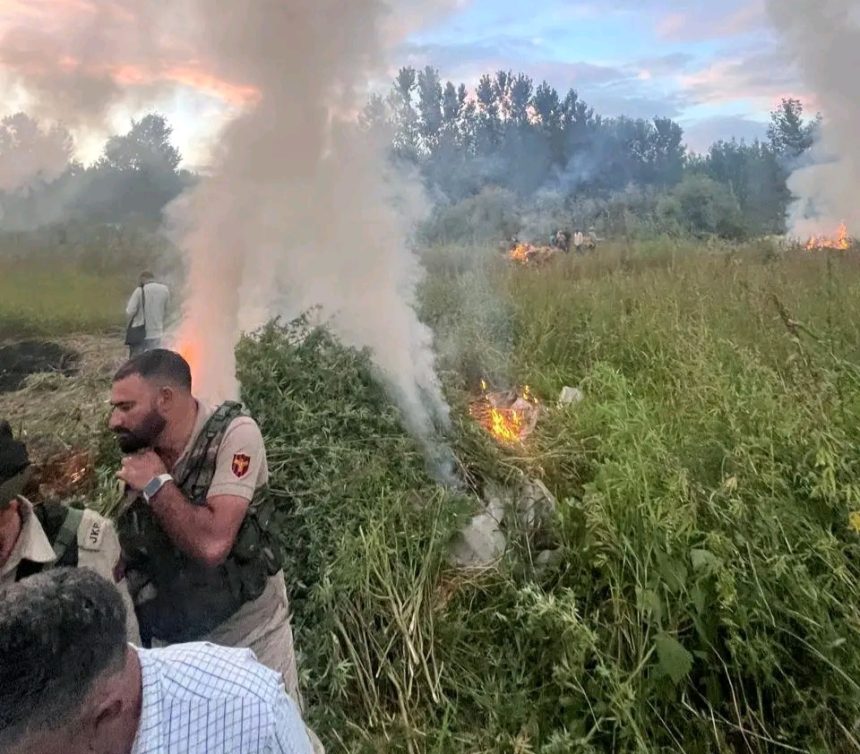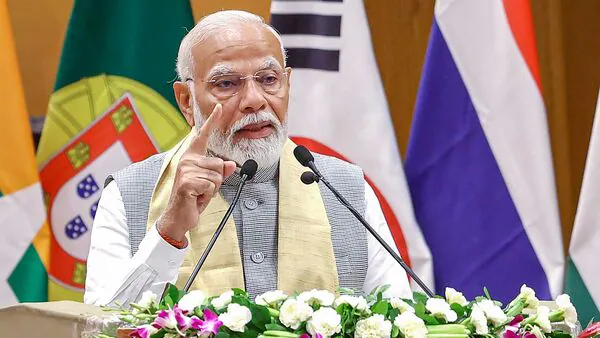Under the esteemed patronage of Chief Justice, High Court of Jammu & Kashmir and Ladakh, N Kotiswar Singh, and guided by Chairperson, Governing Committee for J&K Judicial Academy, Justice Sanjeev Kumar, alongside Justices Javed Iqbal Wani, Rahul Bharti, and Moksha Kazmi, members of the Governing Committee, the J&K Judicial Academy orchestrated a one-day workshop on “Order XXXIX CPC, Contempt of Court, Execution of Decrees, Summary Trial U/O XXXVII CPC.” This enlightening event was specifically tailored for Civil Judges (Senior/Junior Division) from the Jammu Province and unfolded at the prestigious J&K Judicial Academy in Janipur.
Justice Sanjeev Kumar, who is both a Judge at the High Court of J&K and Ladakh and the Chairperson of the Governing Committee for the Judicial Academy, inaugurated the training program. In his inaugural address, Justice Sanjeev Kumar emphasized the pivotal role of judicial conduct and behavior, both within and outside the courtroom, in upholding public trust in the impartiality and independence of the judiciary. He stressed the importance of aligning words with actions and recounted real-life experiences to underscore the purpose of such training initiatives: enhancing the awareness of judicial officers regarding laws, breaking down inhibitions, and sharing best practices in their day-to-day work.
The Director of the J&K Judicial Academy, Y P Bourney, extended a warm welcome to the attendees and provided an insightful overview of the program. He emphasized that judicial officers must not only possess internal excellence but also visibly exhibit functional excellence, which is essential to fulfill the constitutional promise of justice by the entire judiciary. Bourney underlined that when a judge presides over a trial, they are, in a sense, on trial themselves, and any action that undermines the foundation of justice is impermissible.
In the first technical session, M.S. Parihar, a former District & Sessions Judge at the High Court of J&K, explored the types and principles of injunction with reference to rules under Order XXXIX CPC. He elaborated on permanent and temporary injunctions, shedding light on their roles in the context of preserving property and maintaining the sanctity of fair trial. Additionally, he delved into the legal provisions related to Contempt of Court.
The second technical session, led by Kikar Singh Parihar, another former District and Sessions Judge at the High Court of J&K, delved into core issues surrounding the execution of decrees, their types, and the relevant procedures. He discussed the constituents of Order XXXVII CPC, highlighting how it prevents unnecessary delays in legal proceedings and ensures a fair playing field for both the plaintiff and defendant.
Throughout the day, all sessions remained interactive, with enthusiastic participation from the attendees who shared their experiences and engaged in discussions on various aspects of the topics at hand. Numerous queries raised by participants were thoughtfully addressed by the resource persons.


